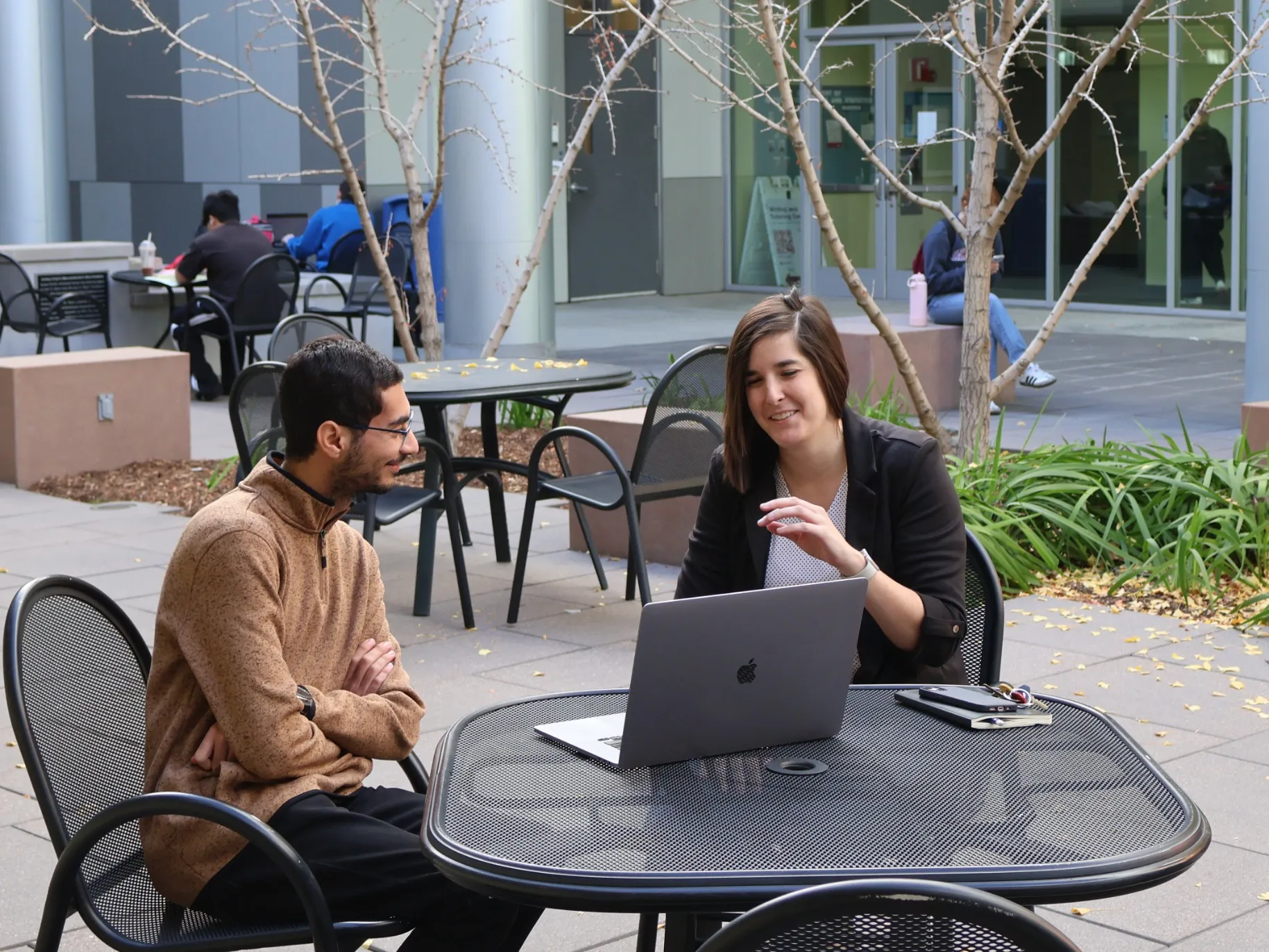- Home
- >
- APU Articles
- >
- News Article
APU Receives $900,000 Research Grant to Help K-12 Decision Makers
November 25, 2024 | Category Humanities and Sciences | Written By Nathan Foster

Azusa Pacific University received a $900,000 grant in partnership with Northwestern University and the University of Chicago from the U.S. Department of Education’s Institute of Education Sciences (IES) with Kaitlyn G. Fitzgerald, PhD, assistant professor in the Department of Computer Science, Engineering, Math, Physics, and Statistics, as a co-principal investigator. Undergraduate APU students will work with Fitzgerald to discover the best ways of communicating evidence from education research studies with educational decision makers through this three year grant.
Although the grant funding is split between the three institutions, APU will receive the largest portion to support student research. Three applied math and computer science undergraduate students will help Fitzgerald design experiments, produce visualizations and information displays, and conduct data analysis. “I’m excited for this amazing mentorship opportunity,” she said. “There’s lots of research that shows that having undergrads involved in research is a ‘high impact practice’ that’s most formative in preparing them for grad school or to experience success if they go straight into the industry.” Fitzgerald looks forward to helping students build skills of solving problems that they wouldn’t normally encounter in the classroom. The students will also be listed as co-authors on all papers published from the studies and will present their research at national academic conferences, rare opportunities for undergraduates. “Working with students on research is one of my favorite aspects of my job, as I get to know them, help them grow academically, and advise them in their professional development and career preparation.”
Fitzgerald and the team from Northwestern and the University of Chicago will share their findings with IES and education researchers across the country. The goal is to make data from education research studies more accessible to decision-makers who consult research when making curricular and policy decisions about PreK-12 classrooms. “In the last two decades, there’s been a big evidence-based decision making movement in education,” Fitzgerald said. “We want to know what curricula are most effective and what teacher and professional development programs work best.” While there have been numerous studies conducted to gather this information, the statistics from these studies haven’t been communicated or used efficiently. Education decision makers—mainly principals and superintendents—don’t always have training in how to interpret the data and statistics.
The grant will fund a series of survey experiments that Fitzgerald and her team will conduct with education decision makers, testing visualizations and information displays to see how they interpret them and which ones are effective. The team will also run a series of human-computer interaction studies with interviews and prototyping to develop open source software which will enable more education researchers to create effective information displays for communicating their findings to PreK-12 education decision-makers. The final year of the grant will be capped off with a national survey of principals to get a broad representative perspective of what their needs are when making evidence based decisions about curricula and programs in their schools and districts.
Fitzgerald is excited to work with her dissertation advisor from Northwestern, renowned statistician Elizabeth Tipton, PhD, and Alex Kale, PhD, an expert in data visualization and human computer interaction at the University of Chicago. “I’m looking forward to collaborating with Beth, Alex, and their teams. Northwestern and UChicago are two of the top research universities in the country, particularly in the areas we’ll be studying,” Fitzgerald said. “Partnering with such prestigious institutions is a testament to the quality of APU’s statistics and computer science programs.”